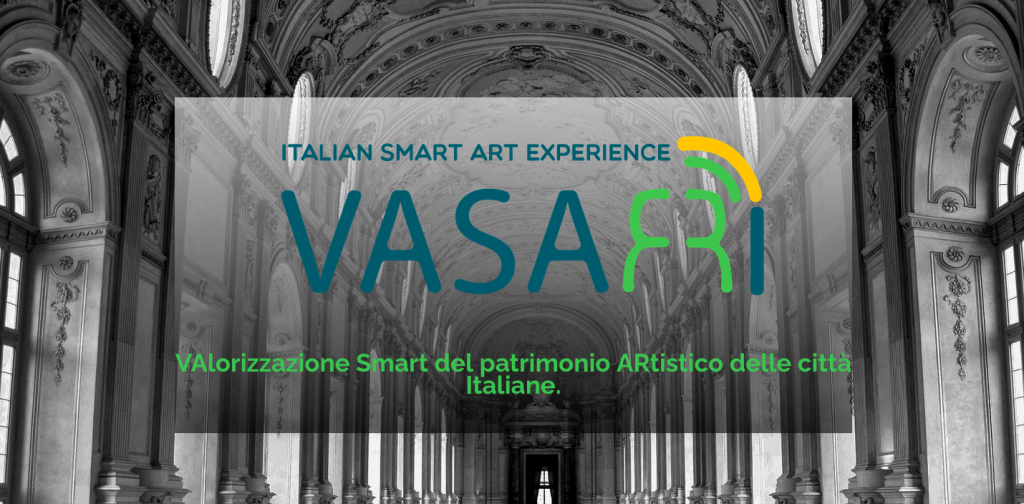A 360-degree art experience through videos, sound effects and audio tracks, scents and tactile elements which recreate unique environments and characteristics of our cultural heritage, offering visitors a new immersive experience of artworks.
This is the idea behind VASARI (Italian acronym for “Smart Valorization of the Artistic Heritage of Italian Cities”), a project funded by the NOP Research and Innovation 2014-2020 under Axis II “Thematic Projects”, action “Clusters” which finances industrial research and experimental development projects in the 12 specialization areas identified by the National Research Programme 2015-2020. The project, which falls within the Cultural Heritage specialization area, started in September 2018 and is now coming to an end. It can already boast a number of practical applications in some important cultural sites in Southern Italy: Matera and its “Sassi” and rupestrian churches, L’Aquila, the architectural wonders of Salerno, the Basilica of Saint Nicholas with its Treasure in Bari, the Diocesan Museum in Monreale, and SIMUA in Palermo. In these five sites it is possible to experience the different functions of VASARI through a multisite and multisensory demonstrator which also provides the possibility of creating a common thread between the different sites, offering an experience that is not limited to the physical space of a single site.

Thanks to a platform that exploits the potential of cutting-edge technology, the project aims to build a new cultural space in which the visitor is part of a cognitive and information network, both physical and virtual, integrated with data and services to enhance the experience. The architecture of VASARI, designed with microservices deployed in an infrastructure for Edge and Fog Computing, allows rapid adaptability of the system to different loads produced by an increasing number of requests from users (visitors, administrators and tour operators). The platform gives prominence to the minor cultural offer that is quite removed from the main tourist circuits, generating an advantage in terms of greater visibility and integration. In addition, the project can generate significant economic benefits and employment opportunities as it encourages the development of a local economy linked to cultural tourism, enables young people to develop skills needed by the local labour market, allows companies to expand their offer through innovative services, enables technology transfer from universities and companies specializing in cultural technologies, implementing fundamental cooperation logics for the tourism industry.
Underlying all this is a new, more participatory and active form of communicationthat leads to a greater understanding of cultural heritage, encouraging the development of new learning methods, especially among the new generations.
The project implementation involves companies from Lucania and Puglia, the Universities of Salerno, Molise and Milan, and the National Interuniversity Consortium for Informatics.
The shooting of the docufilm “Arianna” began in Salerno in late December 2021. The docufilm is part of the project and will showcase the technologies applied in the city of Salerno. It tells the story of two PhD students from the University of Salerno, working on their doctoral theses, who have to test an Augmented Reality App that allows visitors to interact with places or assets, listen to audio files to deepen their knowledge of art, archaeology, religion, history and tradition and view videos, photos, 3D objects, virtual tours and documents in pdf format. By involving the grandfather of one of the two protagonists in the testing, the story addresses the theme of the “digital divide” in the use of information technologies. The grandfather is also the key character in the video game entitled “Nonn-Avventura: alla scoperta delle diavolerie tecnologiche” (which roughly translates as “Grandp-adventure: discovering weird technological inventions”), which will help visitors to explore the technologies used in the other demonstrators in Palermo, Matera, Bari and L’Aquila.
Last January, the project was presented at Open Space in Matera where the use of an emotional black box that created a dedicated storytelling brought to life the environments of the rupestrian churches of Matera. This is a replicable, itinerant module that allows historical sites or works of art to be enjoyed remotely, something that was in great demand during the Covid-19 pandemic.

